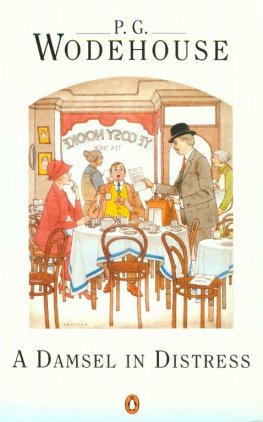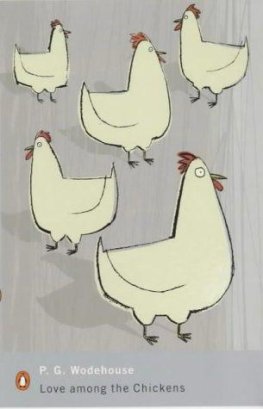Pelham Wodehouse - William Tell Told Again
Here you can read online Pelham Wodehouse - William Tell Told Again full text of the book (entire story) in english for free. Download pdf and epub, get meaning, cover and reviews about this ebook. genre: Prose. Description of the work, (preface) as well as reviews are available. Best literature library LitArk.com created for fans of good reading and offers a wide selection of genres:
Romance novel
Science fiction
Adventure
Detective
Science
History
Home and family
Prose
Art
Politics
Computer
Non-fiction
Religion
Business
Children
Humor
Choose a favorite category and find really read worthwhile books. Enjoy immersion in the world of imagination, feel the emotions of the characters or learn something new for yourself, make an fascinating discovery.

- Book:William Tell Told Again
- Author:
- Genre:
- Rating:3 / 5
- Favourites:Add to favourites
- Your mark:
- 60
- 1
- 2
- 3
- 4
- 5
William Tell Told Again: summary, description and annotation
We offer to read an annotation, description, summary or preface (depends on what the author of the book "William Tell Told Again" wrote himself). If you haven't found the necessary information about the book — write in the comments, we will try to find it.
William Tell Told Again — read online for free the complete book (whole text) full work
Below is the text of the book, divided by pages. System saving the place of the last page read, allows you to conveniently read the book "William Tell Told Again" online for free, without having to search again every time where you left off. Put a bookmark, and you can go to the page where you finished reading at any time.
Font size:
Interval:
Bookmark:
William Tell Told Again
By P. G. Wodehouse
1904
With Illustrations in Colour by Philip Dadd Described in Verse by John W. Houghton
To Biddy O'Sullivan for a Christmas Present
The Swiss, against their Austrian foes,
Had ne'er a soul to lead 'em,
Till Tell, as you've heard tell, arose
And guided them to freedom.
Tell's tale we tell againan act
For which pray no one scold us
This tale of Tell we tell, in fact,
As this Tell tale was told us.
Chapter I
Once upon a time, more years ago than anybody can remember, before the first hotel had been built or the first Englishman had taken a photograph of Mont Blanc and brought it home to be pasted in an album and shown after tea to his envious friends, Switzerland belonged to the Emperor of Austria, to do what he liked with.
One of the first things the Emperor did was to send his friend Hermann Gessler to govern the country. Gessler was not a nice man, and it soon became plain that he would never make himself really popular with the Swiss. The point on which they disagreed in particular was the question of taxes. The Swiss, who were a simple and thrifty people, objected to paying taxes of any sort. They said they wanted to spend their money on all kinds of other things. Gessler, on the other hand, wished to put a tax on everything, and, being Governor, he did it. He made everyone who owned a flock of sheep pay a certain sum of money to him; and if the farmer sold his sheep and bought cows, he had to pay rather more money to Gessler for the cows than he had paid for the sheep. Gessler also taxed bread, and biscuits, and jam, and buns, and lemonade, and, in fact, everything he could think of, till the people of Switzerland determined to complain. They appointed Walter Frst, who had red hair and looked fierce; Werner Stauffacher, who had gray hair and was always wondering how he ought to pronounce his name; and Arnold of Melchthal, who had light-yellow hair and was supposed to know a great deal about the law, to make the complaint. They called on the Governor one lovely morning in April, and were shown into the Hall of Audience.
"Well," said Gessler, "and what's the matter now?"
The other two pushed Walter Frst forward because he looked fierce, and they thought he might frighten the Governor.
Walter Frst coughed.
"Well?" asked Gessler.
"Erahem!" said Walter Frst.
"That's the way," whispered Werner; "give it him!"
"Erahem!" said Walter Frst again; "the fact is, your Governorship"
"It's a small point," interrupted Gessler, "but I'm generally called 'your Excellency.' Yes?"
"The fact is, your Excellency, it seems to the people of Switzerland"
"Whom I represent," whispered Arnold of Melchthal.
"Whom I represent, that things want changing."
"What things?" inquired Gessler.
"The taxes, your excellent Governorship."
"Change the taxes? Why, don't the people of Switzerland think there are enough taxes?"
Arnold of Melchthal broke in hastily.
"They think there are many too many," he said. "What with the tax on sheep, and the tax on cows, and the tax on bread, and the tax on tea, and the tax"
"I know, I know," Gessler interrupted; "I know all the taxes. Come to the point. What about 'em?"
"Well, your Excellency, there are too many of them."
"Too many!"
"Yes. And we are not going to put up with it any longer!" shouted Arnold of Melchthal.
Gessler leaned forward in his throne.
"Might I ask you to repeat that remark?" he said.
"We are not going to put up with it any longer!"
Gessler sat back again with an ugly smile.
"Oh," he said"oh, indeed! You aren't, aren't you! Desire the Lord High Executioner to step this way," he added to a soldier who stood beside him.
The Lord High Executioner entered the presence. He was a kind-looking old gentleman with white hair, and he wore a beautiful black robe, tastefully decorated with death's-heads.
"Your Excellency sent for me?" he said.
"Just so," replied Gessler. "This gentleman here"he pointed to Arnold of Melchthal"says he does not like taxes, and that he isn't going to put up with them any longer."
"Tut-tut!" murmured the executioner.
"See what you can do for him."
"Certainly, your Excellency. Robert," he cried, "is the oil on the boil?"
"Just this minute boiled over," replied a voice from the other side of the door.
"Then bring it in, and mind you don't spill any."
Enter Robert, in a suit of armour and a black mask, carrying a large caldron, from which the steam rose in great clouds.
"Now, sir, if you please," said the executioner politely to Arnold of Melchthal.
Arnold looked at the caldron.
"Why, it's hot," he said.
"Warmish," admitted the executioner.
"It's against the law to threaten a man with hot oil."

Beneath a tyrant foreign yoke,
How love of freedom waxes!
(Especially when foreign folk
Come round collecting taxes.)
The Swiss, held down by Gessler's fist,
Would fain have used evasion;
Yet none there seemed who could resist
His methods of persuasion.
"You may bring an action against me," said the executioner. "Now, sir, if you please. We are wasting time. The forefinger of your left hand, if I may trouble you. Thank you. I am obliged."
He took Arnold's left hand, and dipped the tip of the first finger into the oil.
"Ow!" cried Arnold, jumping.
"Don't let him see he's hurting you," whispered Werner Stauffacher. "Pretend you don't notice it."
Gessler leaned forward again.
"Have your views on taxes changed at all?" he asked. "Do you see my point of view more clearly now?"
Arnold admitted that he thought that, after all, there might be something to be said for it.
"That's right," said the Governor. "And the tax on sheep? You don't object to that?"
"No."
"And the tax on cows?"
"I like it."
"And those on bread, and buns, and lemonade?"
"I enjoy them."
"Excellent. In fact, you're quite contented?"
"Quite."
"And you think the rest of the people are?"
"Oh, quite, quite!"
"And do you think the same?" he asked of Walter and Werner.
"Oh yes, your Excellency!" they cried.
"Then that's all right," said Gessler. "I was sure you would be sensible about it. Now, if you will kindly place in the tambourine which the gentleman on my left is presenting to you a mere trifle to compensate us for our trouble in giving you an audience, and if you" (to Arnold of Melchthal) "will contribute an additional trifle for use of the Imperial boiling oil, I think we shall all be satisfied. You've done it? That's right. Good-bye, and mind the step as you go out."
And, as he finished this speech, the three spokesmen of the people of Switzerland were shown out of the Hall of Audience.
Chapter II
They were met in the street outside by a large body of their fellow-citizens, who had accompanied them to the Palace, and who had been spending the time since their departure in listening by turns at the keyhole of the front-door. But as the Hall of Audience was at the other side of the Palace, and cut off from the front-door by two other doors, a flight of stairs, and a long passage, they had not heard very much of what had gone on inside, and they surrounded the three spokesmen as they came out, and questioned them eagerly.
"Has he taken off the tax on jam?" asked Ulric the smith.
"What is he going to do about the tax on mixed biscuits?" shouted Klaus von der Flue, who was a chimney-sweep of the town and loved mixed biscuits.
Font size:
Interval:
Bookmark:
Similar books «William Tell Told Again»
Look at similar books to William Tell Told Again. We have selected literature similar in name and meaning in the hope of providing readers with more options to find new, interesting, not yet read works.
Discussion, reviews of the book William Tell Told Again and just readers' own opinions. Leave your comments, write what you think about the work, its meaning or the main characters. Specify what exactly you liked and what you didn't like, and why you think so.



